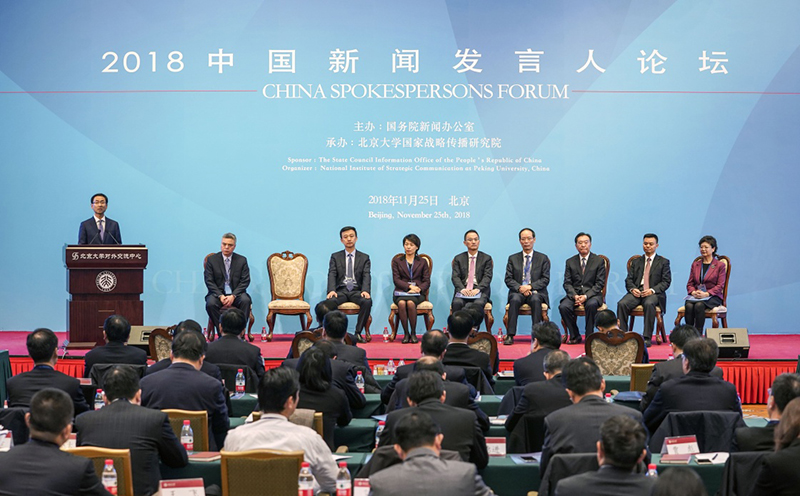Digital media key to public awareness
China's news release system must better adapt to the development of new media to further increase its efficiency and impact in getting its message across to domestic and international audiences on the key issues that concern them, spokespersons of different government organs and State-owned enterprises said on Sunday.
China's news release system must better adapt to the development of new media to further increase its efficiency and impact in getting its message across to domestic and international audiences on the key issues that concern them, spokespersons of different government organs and State-owned enterprises said on Sunday.

"China and the world are currently facing ever-changing, complicated situations, and communication technologies are also developing rapidly, so it is important to keep up with the changes by using new media and choosing the communication method preferred by the public to help them better understand China," said Xu Lin, deputy head of the Publicity Department of the Communist Party of China Central Committee and minister of the State Council Information Office of China.
Xu was speaking at the China Spokespersons Forum, jointly held by the State Council Information Office of China and Peking University's National Institute of Strategic Development in Beijing.
The development of China's news release system is closely linked with the country's opening-up process. The system has now been institutionalized. Furthermore, timely release of information, especially in the event of emergencies, has become a general consensus, Xu added.
To better reach the public, the Ministry of Foreign Affairs' spokesperson office opened an account on the popular Chinese social media app WeChat in January, said Geng Shuang, a spokesman for the ministry.
The ministry has consistently sought to improve the quality of the information released at its news conferences since the first one was held in 1983. Nowadays, it organizes more than 200 news conferences and issues 3,000 statements in different languages annually, Geng said.
"Quality of information is the lifeline of news releases. We have been trying to combine what we want to say and what concerns the media, in addition to making diplomatic expression more down to earth for the audiences from home and abroad," Geng said.
The Ministry of Defense clearly understands that using new media in letting the public hear the voice of the People's Liberation Army is a must, and it is determined to use it more efficiently in the future, said Wu Qian, a spokesman for the ministry.
The Defense Ministry opened accounts on WeChat and China's Twitter-equivalent Sina Weibo in 2015. The ministry also posts cartoons and videos on the accounts to attract the public's attention to PLA, Wu said.
Chinese State-owned enterprises have begun to attach greater importance to establishing a news release system for their branches abroad as they expand their overseas businesses, said Lyu Dapeng, a spokesman for China Petroleum & Chemical Corp or Sinopec. The company now has a team of 50 spokespersons for overseas markets and has launched Facebook and Twitter accounts.
Regardless of which media platforms or forms government organs choose to release news, the bottom line is that they should never try to cover up the facts or turn a blind eye to the public's demand for truth, said Cheng Manli, director of Peking University's National Institute of Strategic Communication.

